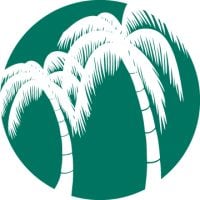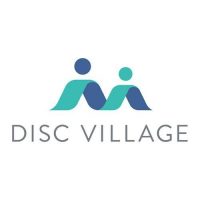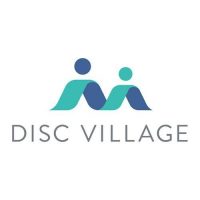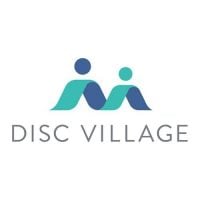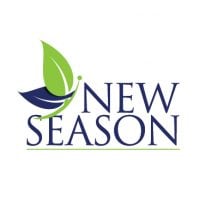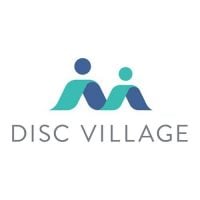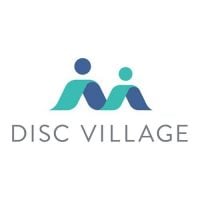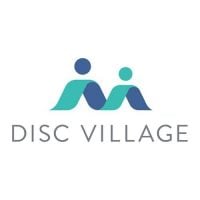William Gladden Foundation
Drug Rehab Center in Tallahassee, Florida
The William Gladden Foundation is a highly-rated drug rehab center in Tallahassee, FL that provides comprehensive treatment programs for addiction and offers aftercare support to help clients maintain sobriety.
Multiple patients have reported William Gladden Foundation as permanently closed.
Research other rehabs in Tallahassee, Florida, or get help finding an open facility.
About William Gladden Foundation in Florida
William Gladden Foundation is a drug treatment facility located in Tallahassee, FL. They specialize in providing comprehensive care for individuals struggling with alcoholism, dual diagnosis, opioid addiction, and drug addiction. With a range of treatment options available, William Gladden Foundation is an ideal choice for those seeking to embark on their sober journey. Offering aftercare support, inpatient treatment, drug rehab, sober-living, and residential levels of care, this facility caters to the unique needs of each individual.
At William Gladden Foundation, individuals suffering from addiction can access a variety of services and treatment methods carefully tailored to their specific needs. Their team of professionals understands the complexities of addiction and provides evidence-based treatment approaches to address these challenges. Through their programs, individuals can benefit from therapy sessions, counseling, medical detox, group support, and specialized therapy for dual diagnosis cases. This comprehensive approach encompasses both physical and psychological healing, empowering individuals to build a strong foundation for lasting recovery.
Genders
Ages
Modality
Additional
Conditions and Issues Treated
With so many people addicted to opioids, we need to help those who want to quit. The cycle begins when opioid addicts take opioids for a painful injury. When someone starts taking their medication differently or in excess, it means they’re addicted and at risk of overdosing.
In , detoxing from these types of treatments is the most effective way to beat this. Most facilities begin with medical assistance and then provide counseling services; rehabilitation follows after successful treatment.
Levels of Care Offered
This center offers a variety of custom treatment tailored to individual recovery. Currently available are Aftercare Support, Drug Rehab, Inpatient, Residential, Sober-Living / Half-Way, with additional therapies available as listed below.
Inpatient treatment is a form of recovery used in drug rehab. Inpatient recovery offers individual therapy, groups, and family therapy to ensure that the addict has the best recovery possible. A variety of treatments are provided in this type of recovery, depending on what treatment the addict needs at that particular time.
The length of inpatient addiction treatment depends on the addict and their addiction. Inpatient rehabilitation can last anywhere from 30 days to 90 days, depending on how severe the drug abuse is. Inpatient rehab is a costly drug treatment, costing anywhere from $30k- to $60k. However, insurance often offers help in covering these costs.
Sober living homes, offered by rehabilitation facilities, help recovering addicts transition back into society. These homes have rules and regulations that must be followed to maintain sobriety. They also provide resources such as vocational training and therapy sessions.
Residential treatment programs are those that offer housing and meals in addition to substance abuse treatment. Rehab facilities that offer residential treatment allow patients to focus solely on recovery, in an environment totally separate from their lives. Some rehab centers specialize in short-term residential treatment (a few days to a week or two), while others solely provide treatment on a long-term basis (several weeks to months). Some offer both, and tailor treatment to the patient’s individual requirements.
The accomplishment of completing a drug or alcohol treatment program is just the first step. Once that is complete, aftercare support comes into play. This includes helping people adjust to life without substances outside of guidelines with assistance like getting sober living accommodations and career counseling and AA/NA programs for those who are struggling between sobriety or want continued help in maintaining it once they have completed their initial rehabilitation at an addiction facility.
Aftercare comprises services that help recovering addicts readjust to normal day-to-day activities while working on specific issues. These problems include psychiatric issues, family problems caused by substance abuse, continuing education pursuits if desired during rehab, etc. These can last up to one year+ depending on what’s needed most urgently upon completion of earlier stages.
Therapies & Programs
Different people react differently to various treatment options. Some drug rehabilitation centers offer individualized treatment that caters to the specific needs of a drug addict. The best treatment option varies on an individual depending on the type of drug abused, life history, medical condition of the person, social circumstances, and the environment they live in now.
When a person enters drug rehab, they usually have anti-drug associations such as withdrawal symptoms, stress, cravings, etc. The first step of drug rehab is to detoxify the body from any residual substances in it. Drug rehabilitation centers usually employ trained medical professionals to help in this process. Usually, the initial detoxification lasts for five days, where the person is monitored under close supervision.
Family therapy sessions typically involve the addict and their family members. During these sessions, a therapist will work with everyone involved to help them understand addiction and find healthy ways of coping without substance abuse.
Some addicts might feel embarrassed about their substance abuse problems. By encouraging family members to attend these sessions, therapists can show addicts that they’re not alone in dealing with addiction. Therapists can also work with family members to help them understand addiction and learn how to offer support and encouragement to their loved one as they deal with substance abuse issues.
Attending group therapy at William Gladden Foundation in , is a useful way for those seeking sobriety to realize they aren’t the only one going through it.
This is when a group of people on different recovery phases get together and talk about what they’re going through, their triggers, successes, and failures. This can include alternative types of therapies too! Group therapy may occur on an outpatient or inpatient basis with groups that have no pre-existing relationships outside the session, unlike support groups where everyone already knows each other beforehand.
Life Skills Services offered at Drug Treatment Centers assists addicts in their recovery by teaching them healthy coping mechanisms that will aid them in becoming sober, focussing on helping people enter into, and maintaining long-term sobriety. Drug Treatment Centers provide Life Skills Services at varying levels of intensity, specific to the needs and requirements of each patient.
Life Skills Services offered at Drug Treatment Centers assists addicts in their recovery by teaching them healthy coping mechanisms that will aid them in becoming sober, focussing on helping people enter into, and maintaining long-term sobriety. William Gladden Foundation in Tallahassee, Florida provide Life Skills Services at varying levels of intensity, specific to the needs and requirements of each patient.The benefits of Life Skills Services offered at Drug Treatment Centers:
- Restores hope and empowerment — Helps addicts believe that recovery is possible and instills a new confidence in their ability to achieve a positive, drug-free future
- Enhances family involvement — Encourages families to get involved in the recovery process and supports their understanding and encouragement of healthy behavior.
- Increases patient’s compliance — Helps patients take responsibility for and ownership of their recovery and encourages continued progress
- Reduces relapse rates — Encourages long-term abstinence and emphasizes the importance of establishing sober support systems.
Additional Details
Specifics, location, and helpful extra information.
Tallahassee, Florida 32309 Phone Number(850) 668-8574 Meta DetailsUpdated November 25, 2023
Staff Verified
William Gladden Foundation Patient Reviews
There are no reviews yet. Be the first one to write one.
Tallahassee, Florida Addiction Information
Florida is one of the nation's epicenters for substance abuse and drug-related overdoses. In 2014, around 410,000 Florida residents were addicted to drugs and alcohol. Over the last 10 years, 12% of all deaths in the state were attributed to substance abuse. Treatment admissions for alcohol reached 24,329 patients in 2016, and 2.5% of Florida high school students admitted to using crack cocaine.
15% of Tallahassee residents reported heavy alcohol use in the past 30 days. 10.3% of the population struggles with substance abuse. Heroin is the most commonly used drug, followed by alcohol and marijuana. The city is spending more money on law enforcement and rehabilitation programs. There are many drug treatment options available in Tallahassee, Florida. These include inpatient treatment, outpatient treatment, 12-step programs, and sober living homes.
Treatment in Nearby Cities
- Venice, FL (259.4 mi.)
- Lake Mary, FL (212.8 mi.)
- Lutz, FL (195.0 mi.)
- Satellite Beach, FL (272.3 mi.)
- Port Orange, FL (215.8 mi.)
Centers near William Gladden Foundation
The facility name, logo and brand are the property and registered trademarks of William Gladden Foundation, and are being used for identification and informational purposes only. Use of these names, logos and brands shall not imply endorsement. RehabNow.org is not affiliated with or sponsored by William Gladden Foundation.

